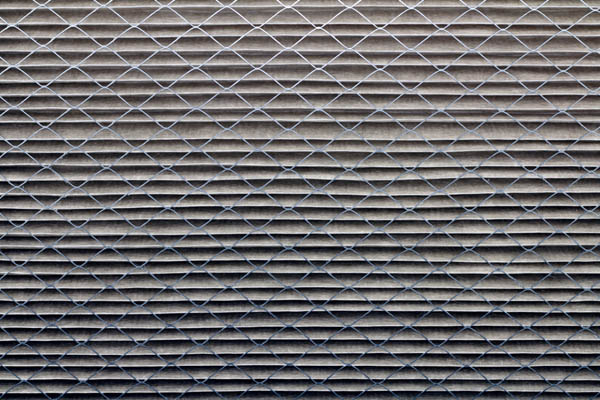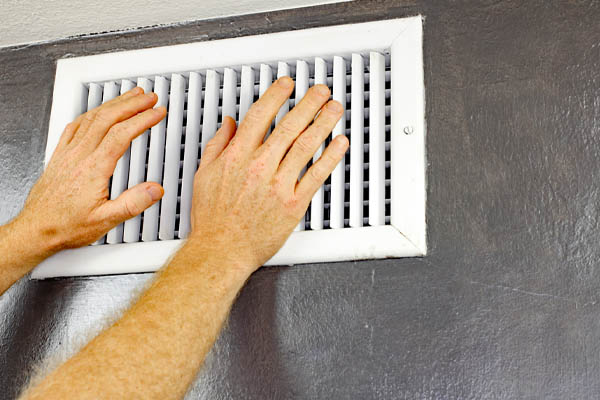All homes have indoor air pollutants. The unwanted airborne particles, such as mold, dirt, and more, are too small for us to see, but you can definitely feel their adverse effects. Households should ensure that they regularly replace the air filters if they are concerned about indoor air quality. Some can follow the suggested schedule of the manufacturer. However, it is best to check the air filters every month. Some homes need to replace their air filters more often in accordance with their system and household needs. They should also check the filter MERV rating to find the most compatible one. Read on to learn everything you need to know about the MERV rating, an essential factor when buying HVAC filters.
What Is A MERV Rating?

Buying air filters can be confusing, especially if you haven’t shopped for them before. All products virtually claim they are the best. Conducting research will help you determine which ones are the most reputable. Try to understand the specifications and what the numbers mean. An example is the MERV rating, an acronym for the Minimum Efficiency Reporting Value. It indicates the ability of the air filter to catch unwanted particles. Higher MERV ratings translate to better filtration capacity.
How MERV Ratings Work
The MERV rating system ranges from 1 to 20. People generally want higher ones, but some applications need a MERV rating that’s scaled in the middle. For instance, hospitals, nuclear power plants, and other demanding environments typically require air filters with a MERV rating of 16 to 20. Meanwhile, most homes usually require filters that are rated from MERV 5 to 13. Air filters below MERV 5 will not be enough to maintain good air quality inside your home, while those above MERV 13 might compromise the performance of your home HVAC unit.
How Is MERV Rating Determined?

Filters pass through rigorous tests to figure out their MERV rating. The procedure includes various particles in three different sizes:
- E1 is 0.3 to 1.0 microns
- E2 is 1.0 to 3.0 microns
- E3 is 3.0 to 10 microns
The human eye cannot see these particles as we cannot identify objects smaller than 40 microns. To get an idea, human hair has a diameter of around 50 microns. Fortunately, sensitive laboratory equipment can detect all these particles. They are sprayed through the filters and then counted. The worst test score determines the MERV rating as it is meant to measure the filter’s “minimum efficiency.” The filter should be able to capture 95% or more of the particles to qualify as a MERV 16 filter.
MERV & Your Indoor Air Quality
Indoor air quality significantly affects your family’s comfort and health. Consider converting to a filter with a higher MERV rating if you experience allergies frequently. This way, more pollutants are removed from the air, and you’ll have fewer common allergy symptoms. There will be fewer complaints about runny noses, continuous sneezing, sore throat, headaches, eye irritation, fatigue, and rashes. Upgrading your filter can also protect your home from ducts and bacteria damage. There will also be fewer bouts of illness, and you can avoid contagions. A MERV filter with a high score is beneficial for people who have a weak immune system.
Your Energy Use & MERV Ratings
Air filters require smaller holes to capture more particles in the air. The openings shrink in size as time passes, making it harder for even air to pass through. The HVAC system also consumes more power to operate well. This is the reason it isn’t recommended to use a MERV 20 air filter in homes not built to handle this filtration level. Energy bills may significantly increase, and the system may break down early unless you make adjustments. Residential air filters are usually rated between MERV 8 and 13. These ratings are adequate in maintaining decent air quality in your home without drastically increasing your energy costs. Consult an HVAC professional on which HVAC filter best suits your home if you are unsure which type to use.
How Your HVAC Air Filter Impacts The Condition of Your HVAC System

All forced-air HVAC systems come with a recommended air filter MERV rating. Homeowners should keep the recommended values to stop unwanted complications. Filters with low ratings may be cheaper, but they can result in costly system problems in the future. These air filters may be inadequate for catching pollutants. As a result, the ducts will have bacteria and dust buildup. HVAC system efficiency will drop while maintenance costs will increase. On the other hand, buying an air filter above the recommended rating will result in reduced HVAC airflow, faster wear and tear, and a shorter system lifespan.
Should I Buy Filters With High MERV Ratings?
People often go for higher ratings when it comes to hotel designations, product reviews, and other standards. This typically means you get better experiences, but it isn’t always the case. Higher MERV ratings aren’t always better. Filters with high MERV scores may be better at blocking pollen, pet hair, and bacteria. However, they can also keep air from moving at ideal speeds throughout the system. Poor airflow causes higher energy consumption, HVAC repair bills, and reduced indoor comfort. Therefore, it is crucial that the air filter and its MERV rating match your system.
What MERV Rating Should My Filter Have?
Each HVAC system is unique, so it is hard to give exact recommendations. Checking the owner’s manual is the best step to take. Most homes should do well using a MERV 8 to 13 filter. These can remove most of the unwanted particles without being a burden on the system. You can get better results over time with your system working well together. A MERV 8 filter should be enough for homes with few occupants and no pets, while homes with more people and some pets need a MERV 11 filter. If someone in your home has a weak immune system, it may be necessary to use a MERV 13 filter to ensure their health and well-being.
Conclusion
It is important to factor in the MERV rating when choosing air filters. It indicates the worst-case performance when sprayed with microscopic particles. We do not want low ratings because they are insufficient for air cleaning. High ratings aren’t necessarily the best as they can cause adverse effects on incompatible systems. Most homes only require air filters with a MERV score ranging from 8 to 13. The best rating depends on the unique situation of each household.
Call Tevis Energy For All Your HVAC Needs

For first-rate heating and cooling services in Central Maryland & Southern Pennsylvania, don’t hesitate to call Tevis Energy. We have the best professionally certified and highly skilled technicians who can provide top-notch HVAC services, such as maintenance, repairs, installations, and replacements. Our friendly techs have years of experience and extensive knowledge to service your HVAC system correctly.
Our company offers one of the most budget-friendly HVAC service rates in the locality. Our tune-up services can improve indoor air quality and comfort, enhance energy efficiency, and reduce energy bills. We can provide you with the most suitable HVAC repair or replacement system for your home within your budget. To ensure your satisfaction, all our work is guaranteed. Call Tevis Energy and book a service appointment today to receive a free, in-home estimate.
You can click here to contact us now or call us at (410) 876-6800 to find out more!
